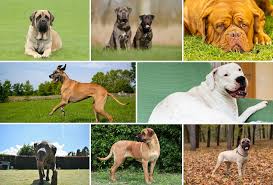Newfoundland Puppies: Description and Complete Care Guide
Newfoundland puppies, with their large size, majestic appearance, and gentle demeanor, are truly a sight to behold. These remarkable dogs are often referred to as “gentle giants” due to their massive build and their incredibly sweet and patient nature.
Whether you’re captivated by their charm, considering adding one to your family, or simply intrigued by these lovable canines, let’s delve into the world of Newfoundland puppies and discover what makes them so special.
Newfoundland puppies are undeniably striking with their thick, water-resistant double coats and their large, powerful bodies. As they grow, they can reach impressive sizes, with males typically weighing between 130 to 150 pounds (59 to 68 kilograms) and females between 100 to 120 pounds (45 to 54 kilograms). Their coats come in various colors, including black, brown, gray, and Landseer (black and white with distinct markings).
One of the most endearing qualities of Newfoundland puppies is their gentle and patient temperament. They are known for being friendly, calm, and exceptionally patient, making them excellent companions for individuals and families alike.
They have an innate affinity for children and are often referred to as “nanny dogs” due to their protective and nurturing instincts towards little ones. Newfoundland puppies thrive on human companionship and are eager to please, which makes them highly trainable and well-suited for various activities.
Despite their massive size, Newfoundland puppies are intelligent and eager learners. They possess a natural instinct to work alongside humans, as they were originally bred as working dogs in Newfoundland, Canada. Whether it’s obedience training, water rescue, or even therapeutic work, these dogs excel in a wide range of activities. Positive reinforcement and consistency are key when training Newfoundland puppies, as they respond best to gentle guidance and encouragement.
Newfoundland puppies require regular exercise to maintain their overall health and well-being. While they may not have the high energy levels of some other breeds, they still benefit from daily walks and playtime. They particularly enjoy activities that involve swimming, as their webbed paws and water-resistant coats make them excellent swimmers.
Their thick coats require regular grooming to prevent matting and keep them looking their best. Weekly brushing, nail trims, and regular ear cleanings are essential to maintain their coat’s health and cleanliness.
Newfoundland puppies are exceptionally devoted to their families and thrive in a loving and nurturing environment. They form strong bonds with their human counterparts and are known to be gentle and patient with children. However, due to their large size, it’s important to teach children how to interact appropriately with these gentle giants to ensure everyone’s safety. With proper socialization, Newfoundland puppies also tend to get along well with other pets in the household, making them a wonderful addition to multi-pet families.
Newfoundland puppies are generally healthy dogs, but like all breeds, they may be prone to certain health issues. These can include hip and elbow dysplasia, heart conditions, and certain eye disorders. Responsible breeders screen their breeding dogs for these potential genetic conditions to reduce the risk of passing them on to the offspring.
With proper care, a well-balanced diet, regular exercise, and routine veterinary check-ups, Newfoundland puppies can live a happy and fulfilling life. Their average lifespan ranges from 8 to 10 years.
Newfoundland puppies are remarkable creatures with hearts of gold. Their gentle and patient nature, combined with their majestic appearance, makes them an irresistible choice for many dog lovers. Whether as working dogs, therapy dogs, or loving family companions, these gentle giants bring joy, loyalty, and endless love into your home.
Read Also: Required Preparation for the Arrival of Poultry Chicks
History and Origin of these Puppies

The history and origin of Newfoundland puppies can be traced back to the island of Newfoundland in Canada. It is believed that these dogs are descendants of various European working breeds that were brought to the island by fishermen and explorers in the 16th century.
The precise lineage of Newfoundland puppies is not well-documented, but it is believed that they have ancestry from breeds such as the Great Pyrenees, Portuguese Water Dog, and possibly the Tibetan Mastiff. These dogs were initially bred for their exceptional working abilities in a harsh and demanding environment.
Newfoundlands earned their name from the island they originated from, where they were primarily used by fishermen for various tasks. Their excellent swimming abilities, strength, and endurance made them ideal for water rescue, hauling nets, and pulling fishing equipment. They were also trained as draft animals, pulling carts and sleds.
The breed’s incredible strength and natural swimming abilities were quickly recognized, and their reputation as water rescue dogs spread beyond Newfoundland. Reports of their heroic rescues of drowning individuals further enhanced their popularity and solidified their role as highly skilled and dependable working dogs.
Newfoundlands were eventually brought to England in the early 19th century, where their unique characteristics and gentle temperament caught the attention of dog enthusiasts and breeders. The breed gained recognition and started to be refined through selective breeding for specific traits.
In 1860, the breed was officially recognized by the English Kennel Club, and its popularity grew rapidly. Newfoundland puppies were exported to various parts of the world, including Europe and North America, where they continued to make their mark as exceptional working dogs and beloved family companions.
Today, Newfoundland puppies are cherished for their gentle and patient nature, loyalty, and versatility. While they still excel in water rescue and working roles, they are primarily kept as loving family pets and participate in various dog sports and activities such as obedience, agility, and therapy work.
Health Issues and Lifespan of Newfoundland Puppies

Newfoundland puppies, like many other dog breeds, may be prone to certain health issues. While not all individuals will experience these conditions, it’s important for potential owners to be aware of them. Responsible breeders often conduct health screenings and tests to minimize the risk of passing on these genetic conditions to offspring.
Here are some health issues commonly associated with Newfoundland puppies:
Hip and Elbow Dysplasia: This is a common orthopedic condition in large breeds. It occurs when the hip or elbow joints develop abnormally, leading to discomfort, lameness, and arthritis. Regular exercise, a balanced diet, and maintaining a healthy weight can help reduce the risk and severity of dysplasia.
Subaortic Stenosis (SAS): SAS is a heart condition characterized by the narrowing of the aorta, the main blood vessel leaving the heart. It can cause heart murmurs, weakness, and even sudden death. Regular cardiac evaluations and screenings are crucial to detect and manage this condition.
Gastric Dilatation-Volvulus (GDV) or Bloat: This is a life-threatening condition in which the stomach twists and fills with gas. It can lead to restricted blood flow and tissue damage. GDV requires immediate veterinary attention. Feeding smaller, more frequent meals and avoiding exercise immediately after meals can help reduce the risk of bloat.
Cystinuria: Newfoundland puppies may be prone to cystinuria, a genetic disorder that causes the formation of cystine bladder stones. It can result in urinary blockages and discomfort. Regular monitoring and a special diet prescribed by a veterinarian can help manage this condition.
Progressive Retinal Atrophy (PRA): PRA is a degenerative eye disorder that leads to vision loss and blindness. Regular eye examinations by a veterinary ophthalmologist can help detect PRA early and manage the condition to preserve vision for as long as possible.
Lifespan: The average lifespan of Newfoundland puppies typically ranges from 8 to 10 years. However, with proper care, including a nutritious diet, regular exercise, routine veterinary check-ups, and attention to their specific health needs, some individuals may live even longer.
It’s important for Newfoundland puppy owners to work closely with their veterinarians, follow recommended health protocols, and provide a nurturing and supportive environment for their dogs. By being proactive in their care and addressing any potential health concerns early on, owners can help ensure their Newfoundland puppies live long, happy, and healthy lives.
Read Also: Silky Terrier Dogs: Description and Complete Care Guide
Newfoundland Puppies Complete Grooming and Care Guide

Grooming and care are essential aspects of keeping your Newfoundland puppy healthy, happy, and looking their best. These gentle giants require regular maintenance to keep their coats clean, free of matting, and their overall well-being in check. Here is a complete grooming and care guide for Newfoundland puppies:
Brushing: Newfoundland puppies have thick, double coats that require regular brushing to prevent matting and remove loose fur. Use a slicker brush or a wide-toothed comb to gently brush through their coat, paying attention to areas prone to tangles, such as behind the ears and under the legs. Aim for at least a weekly brushing session.
Bathing: Newfoundland puppies have water-resistant coats, so they don’t require frequent baths. Aim to bathe them every two to three months or as needed, especially if they get dirty or develop a strong odor. Use a dog-specific shampoo and conditioner, and thoroughly rinse their coat to remove all the product.
Nail Trimming: Regular nail trimming is important to prevent overgrowth and discomfort. Use a pair of dog nail clippers or a grinder to trim the tips of their nails. Be cautious not to cut too close to the quick, which is the sensitive part inside the nail. If you’re uncertain, it’s best to consult a professional groomer or veterinarian.
Ear Cleaning: Newfoundland puppies have floppy ears that can trap moisture and debris, making them prone to ear infections. Clean their ears regularly using a dog-specific ear cleaning solution and a cotton ball. Gently wipe the visible parts of the ear, being careful not to insert anything into the ear canal.
Dental Care: Good oral hygiene is important for your puppy’s overall health. Brush their teeth regularly using a dog toothbrush and toothpaste formulated for dogs. Additionally, provide them with dental chews or toys designed to help clean their teeth and freshen their breath.
Exercise: Newfoundland puppies may have a calm demeanor, but they still require regular exercise to keep them physically and mentally stimulated. Aim for daily walks and play sessions to prevent weight gain and promote their overall well-being. They also enjoy activities such as swimming, so if possible, provide opportunities for them to indulge in their natural love for water.
Socialization and Training: Early socialization is crucial for Newfoundland puppies to develop into well-rounded and confident dogs. Expose them to various environments, people, and other animals from a young age. Enroll them in puppy classes or obedience training to ensure they receive proper guidance and develop good manners.
Health Check-ups: Schedule regular veterinary check-ups to monitor your puppy’s health and address any concerns promptly. Keep up with vaccinations, flea and tick prevention, and deworming treatments as recommended by your veterinarian.
Nutrition: Provide your Newfoundland puppy with a balanced and nutritious diet appropriate for their age, size, and activity level. Consult your veterinarian to determine the best diet and feeding schedule for your puppy. Ensure they have access to fresh water at all times.
Love and Attention: Newfoundland puppies thrive on human companionship and affection. Give them plenty of love, attention, and quality time. They are known to be gentle, loyal, and devoted companions, and they will thrive in a nurturing and loving environment.
By following this complete grooming and care guide, you can ensure that your Newfoundland puppy remains healthy, comfortable, and well-groomed throughout their life.
Read Also: Kitchen Wastes Complete Management Guide









